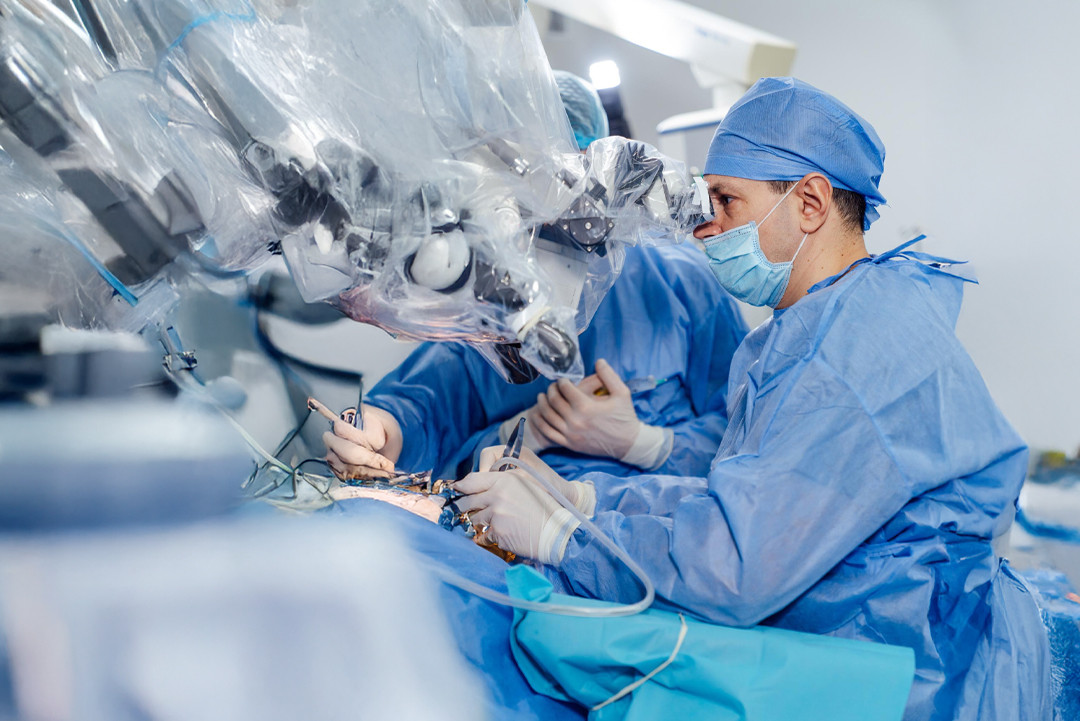What is Thoracic Surgery?
Thoracic surgery involves diagnosing and treating conditions affecting the chest, excluding the heart (handled by cardiovascular surgeons). It encompasses procedures on the esophagus, trachea, diaphragm, chest wall, and mediastinum (area between the lungs). Advanced techniques, such as minimally invasive video-assisted thoracic surgery (VATS) and robot-assisted surgeries, allow for precision and faster recovery.
Types of Thoracic Surgeries
- Lung Resection
- Wedge Resection: Removes a triangular section of lung tissue around a tumor.
- Lobectomy: Removes one or more lobes of a lung, common for early-stage lung cancer.
- Pneumonectomy: Removes an entire lung, often for extensive cancer or severe infection.
- Cancer Surgeries
- Lung Cancer: Tumor removal, potentially including lymph nodes or full lung.
- Esophageal Tumors: Removing or repairing the esophagus.
- Thymus Tumors: Surgery on tumors in the thymus gland.
- Pleural Procedures
- Thoracentesis: Removes fluid from the chest wall around the lungs.
- Pleural Effusion Surgery: Removes excess fluid and infection prevention.
- Chest Wall Reconstruction
- Repairs damage or deformities, such as pectus excavatum or pectus carinatum.
- Transplants and Advanced Procedures
- Lung Transplants: Replacing diseased lungs.
- Aneurysm Repairs: Treating enlarged arteries or veins in the chest.
Approaches to Thoracic Surgery
- Open Surgery
- Requires larger incisions for direct access to chest organs.
- Used for complex or extensive procedures.
- Minimally Invasive Surgery (VATS)
- Small incisions and a camera provide a view inside the chest.
- Benefits: Less pain, quicker recovery, smaller scars.
- Robot-Assisted Surgery
- Advanced version of minimally invasive surgery.
- Surgeon operates remotely with precise robotic tools.
When to See a Thoracic Surgeon?
Seek a thoracic surgeon’s evaluation if you experience:
- Persistent Cough or Chest Pain: Lasting over a few weeks.
- Shortness of Breath: Especially during physical activity.
- Unexplained Weight Loss: May indicate serious conditions like cancer.
- Blood in Phlegm: Requires immediate attention.
- Swelling in Neck or Face: Could signal issues with vessels or lymph nodes.
Potential Complications
While thoracic surgery can be life-saving, risks include:
- Infections, such as pneumonia.
- Lung Collapse.
- Pulmonary Edema (fluid accumulation in the lungs).
- Irregular Heart Rhythms or Heart Failure.
Early diagnosis and expert care can mitigate these risks and improve recovery outcomes. Consult a thoracic surgeon if symptoms persist.


















